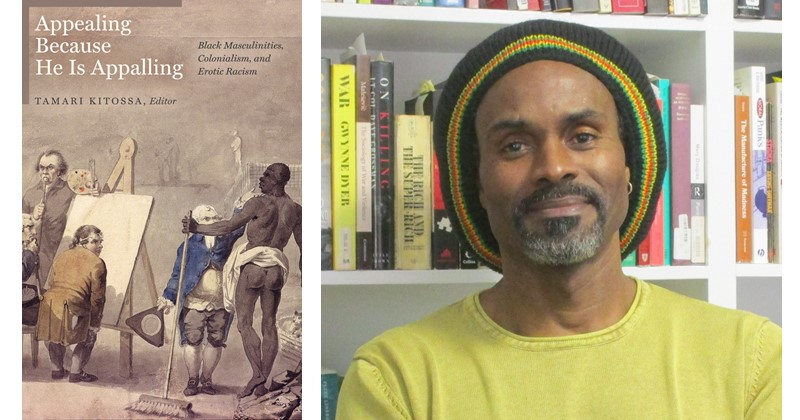Tamari Kitossa, editor of Appealing Because He Is Appalling: Black Masculinities, Colonialism, and Erotic Racism, has created a collection of interdisciplinary thought on erotic racism and Black masculinities with four related aims, as noted in his introduction to the book:
First, it aims to elucidate across time, place, and space a humane account of the impact of the Black Phallic Fantastic on Black men’s lives; their communities; and the ways they accommodate, deploy, and resist.
Second, it aims to contribute to ongoing critical and empathetic empirical and theoretical research that values the humanity of Black men.
Third, through an account of the ways Black men are commodified, desired, loathed, objectified, and mortified, this book analyzes the psychosexual imperatives and ontology of anti-Black cultures, nations, and peoples.
Finally, gender and masculinities studies have got away for far too long with drawing on the insights of Baldwin and Fanon without giving them due recognition. It is his hope this book generates not only debate, discussion, and research, but enables Black men, in all their diversity, to be valued as human beings.

Advance Praise
“Appealing Because He Is Appalling engages critically with the work of James Baldwin and Frantz Fanon, exploring various registers of Black masculinity, Black sexuality and anti-Black racism. It is intersectional, reflective of social and political context, varied, and original in its scope.” Eddie Bruce-Jones, Reader in Law & Anthropology, Birkbeck College, University of London
“Appealing Because He Is Appalling engages with sociology, cultural studies, post-colonial studies, social anthropology, and Black studies across several continents. An exceptionally insightful and rigorous anthology, it will appeal to both scholars and activists.” William Henry, Associate Professor, University of West London
“Appealing Because He Is Appalling is an epitome of literary dialectics on the restoration of Black man to his original state in Eden. Undoubtedly, it represents a gigantic refocus and paradigmatic shift from Black male ‘gendercide’ to decolonizing rebirth of Black manhood. It is a literary bible, especially for all institutions engaging in Black gender studies.” Emmanuel Onyeozili, Professor of Criminology and Criminal Justice, University of Maryland Eastern Shore
